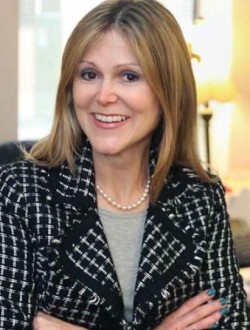Lesley Meng, MD
Dr. Lesley Meng is a native New Orleanian who recently returned to the Crescent City after a post-Hurricane Katrina displacement in Arizona.  “I missed New Orleans every day we were away,” she said. She now practices in East Jefferson General Hospital’s Hematology-Oncology department, where she goes above and beyond to provide the highest level of cancer care for her patients.
“I missed New Orleans every day we were away,” she said. She now practices in East Jefferson General Hospital’s Hematology-Oncology department, where she goes above and beyond to provide the highest level of cancer care for her patients.
What do you love about oncology?
As an oncologist, I become very close with my patients because I see them monthly or even weekly. I get to be my patients’ cheerleader and it feels so good to help them.
Please describe a patient’s first visit.
I typically manage to see patients within 24 hours of their initial phone call. My patients are scared, and rightfully so; they’ve just received devastating news. I take the time to educate them and their family members. I relay the reality of the situation, which is often not as grave as patients think, so that I can ease their fears. The fact is that the majority of cancer patients do not die, nor do they have a recurrence.
I encourage my patients to bring their family members with them to the appointment—the more ears in the room, the better. I love when patients come in with a pen and notebook because for me, the best feeling is knowing their every question was answered.
What happens when a patient is not healthy enough for treatment?
All patients, regardless of their stage of cancer or whether they qualify for treatment, should be treated with the utmost care and compassion. We practice the philosophy of “Do No Harm;” if we cannot offer patients safe chemotherapy, we will not put them through it. We take pride in getting these patients out of pain and helping in every way possible with the dying process.
As someone who has done a considerable amount of cancer research, what can you tell us about genetic testing and screening programs?
Genetic testing allows us to analyze genes, chromosomes and proteins in order to predict the risk of certain types of cancers. We can now identify individuals who do not have cancer but may have a copy of the cancer gene. If a patient tests positive for a cancer gene, it affects how we screen her and her family members. Since they will be screened more frequently, we can catch a cancer as soon as it materializes, before it moves into a late stage.
How do genetics play into your practice?
As an oncologist, it’s my responsibility to investigate a patient’s family history in order to educate her on her risk. A patient with breast cancer, for example, might not make a connection between her cancer and a distant family member’s colon cancer; but in fact, this is a sign that there could be a genetic link. We pay special attention to patients who have developed any type of cancer before the age of 50 and those with family members who have had cancer.
How can we determine our risk?
A primary care physician can determine your risk and knows when to send you to seek the help of a specialist. If you are determined to be at risk, you should follow up with your gynecologist make an appointment to see an oncologist. You can also determine your risk by answering a series of questions online at www.halls.md/breast/risk.htm
ADDRESS:
4228 Houma Blvd., Suite 130
METAIRIE, LA 70006
PHONE:
(504) 883-2968
RESIDENCY:
Louisiana State University, Lafayette, LA
FELLOWSHIP:
Hematology & Oncology
Louisiana State University, New Orleans, LA
BOARD CERTIFICATIONS:
Hematology & Oncology
PHILOSOPHY:
“Treat patients with honesty and compassion, the way you would want to be treated, the way you would want your family members to be treated.”
